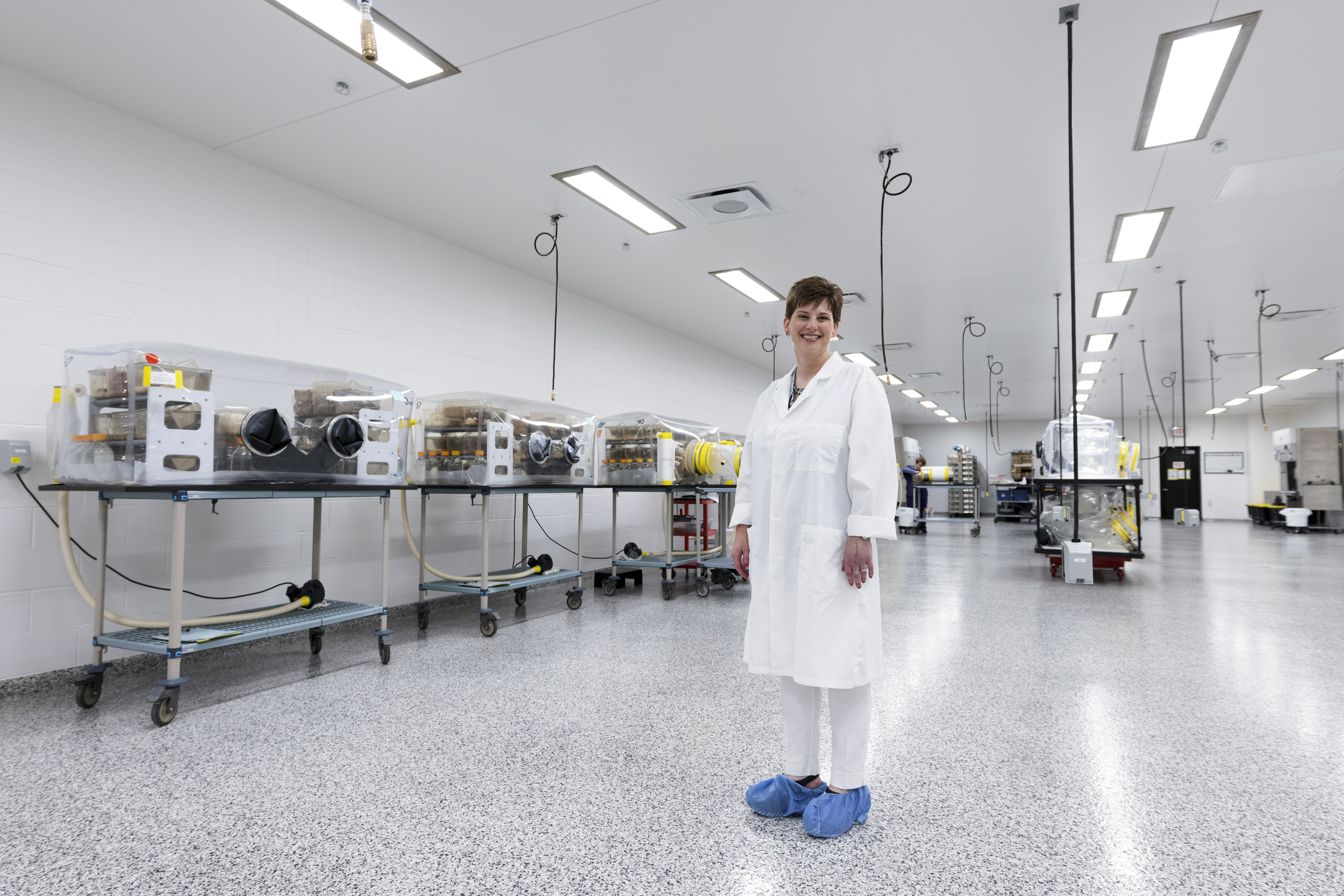Content
The NGMP was established at UNL in 2008 as a collaborative facility to strengthen the efforts of microbiome researchers interested in understanding the factors, including diet, that shape the gut ecosystem. After a major expansion in 2020, the NGMP now maintains multiple strains of germ-free mice in a state-of-the-art facility capable of accommodating up to 50 flexible-film isolators, multiple high-density cage racks, and a positive-pressure Tecniplast ISOcage system. The NGMP has developed a strong reputation for success in maintaining a germ-free environment and completing large-scale, diet-focused microbiome experiments in mice, which has led to multiple local, national, and international collaborations and generated numerous publications.
Since 2012, NGMP efforts have been led by Dr. Amanda Ramer-Tait, who has over 20 years of experience working with germ-free and gnotobiotic mouse models. She has built a dynamic and internationally recognized research program that combines her training in biomedical research with personal connections to agriculture and food. Her research program aims to: (1) establish causality for the gut microbiota and its metabolites in health and disease, (2) identify diet-microbiota interactions that improve disease outcomes, (3) design microbiome-based strategies for treating disease, and (4) advance the use of gnotobiotic mouse models for microbiome research.
Learn more about the microbiome research happening in the NGMP:
Starches common in processed grains can curb helpful gut bacteria
Team shows ecological principles at play in gut microbiome
Gut microbiome directs the immune system to fight cancer
Study suggests gut bacteria helped shape mammalian evolution
